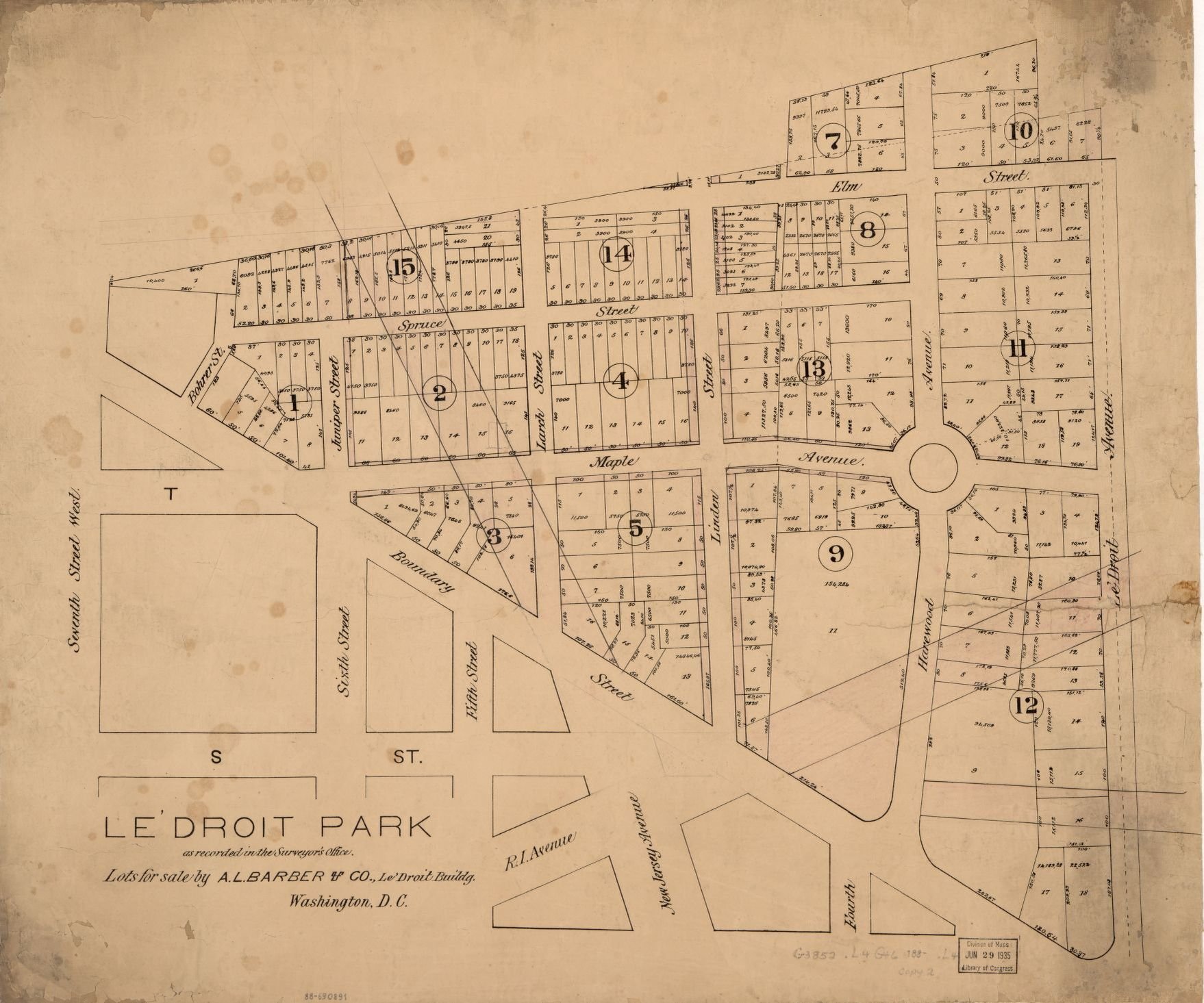
THE LEGACY
In the early 20th century, LeDroit Park was the neighborhood of choice for African American intellectuals who were pioneers in civic leadership, education, business, law, medicine, academia, and the arts.
Founded in 1876, LeDroit Park is a remarkably preserved example of one of the nation’s first master-planned suburban communities.
The neighborhood’s charming architecture features an eclectic mix of the best in European home design including Italian Villa, Gothic Revival, Queen Anne, Second Empire and Italianate. Historically known as “the flower garden of Washington”, LeDroit Park was renowned for its expansive front gardens and charming tree-lined streetscape that continue to distinguish it as an enclave within the city.
Originally founded as an all-white community, LeDroit Park was integrated in 1893 and quickly attracted upwardly mobile Black families given its appealing setting and proximity to Howard University and the Dunbar High School, two of the nation’s earliest and most prominent educational institutions for Black Americans.
During the first decades of the 20th century, LeDroit Park became the neighborhood of choice for African American intellectuals who were pioneers in civic leadership, education, business, law, medicine, academia and the arts, making it one of the nation’s most important political and cultural black residential hubs. Poet Paul Laurence Dunbar, one of the LeDroit Park’s many distinguished residents, wrote that in this community “comes together the flower of colored citizenship from all parts of the country.” The Guest House is proud to celebrate this rich American legacy of perseverance and community reliance.
We invite you to learn more about just a few of the many luminaries who called LeDroit Park home.

Luminaries
-

Senator Edward Brooke
United States Senator
(1919-2015)
Brooke was the first Black Attorney General of Massachusetts and the first Black U.S. Senator since Reconstruction.
-

Hilda Wilkerson Brown
Educator & Artist
(1894-1981)
Brown lectured at Howard University and other schools throughout Washington D.C. on African art heritage, art in interior design and art education for elementary school teachers.
-

Ralph Bunche
Diplomat & Nobel Prize Laureate
(1904-1971)
Bunche was the first African American doctoral recipient in Harvard University’s Political Science department, a United Nations chief mediator and the first African American Nobel Prize Laureate.
-

Anna J Cooper
Educator & Orator
(1858-1964)
Cooper was part of the first class of Black women to graduate from Oberlin College and was a leader and advocate in the Black Women’s Club Movement.
-

General Benjamin O. Davis Sr.
U.S. Army General
(1877-1970)
Davis was the first Black General Officer in the U.S. Army and instrumental in leading actions that supported policies that would eventually lead to integration in the U.S. armed services.
-

Ernest Just
Scientist
(1883-1941)
Just served as the leader of the newly formed Departments of Zoology and Biology at Howard University and became a foremost global expert in cell biology.
-

E. Franklin Frazier
Sociologist & Author
(1894-1962)
Frazier founded and led the D.C. chapter of the American Sociological Association and eventually became the first Black president of the national organization.
-

Mary Church Terrell
Activist, Organizer & Suffragist
(1863-1954)
Terrell founded The Colored Women’s League and was eventually appointed to the Board of Education for D.C. making her the first Black woman in the U.S. to receive such an appointment.
